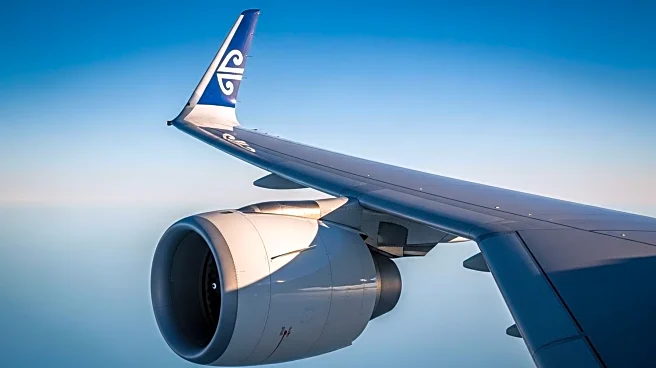What's Happening?
Air New Zealand has reported a 15% decline in pre-tax profit for the year, attributed to ongoing engine reliability issues affecting its fleet. The airline has been dealing with groundings of its Pratt & Whitney PW1100G-powered Airbus narrowbodies and Boeing 787s powered by Rolls-Royce Trent 1000 engines. These groundings have significantly impacted the airline's financial performance, costing between NZ$280 and NZ$320 million for the year ended June 30. Despite receiving NZ$129 million in compensation, the airline's full-year profit would have been NZ$165 million higher if the fleet had operated as intended. Air New Zealand is working closely with engine manufacturers to secure further compensation and improve maintenance timelines.
Why It's Important?
The financial impact of the engine issues on Air New Zealand highlights the challenges airlines face with technical reliability and maintenance. This situation underscores the importance of robust supply chain management and the need for effective partnerships with manufacturers to mitigate operational disruptions. The airline's experience may prompt other carriers to reassess their maintenance strategies and supplier agreements, potentially influencing industry standards and practices. The ongoing issues also affect passenger capacity and service reliability, which could impact customer satisfaction and brand reputation.
What's Next?
Air New Zealand anticipates a slight easing of aircraft groundings in the first half of 2026, with nine to ten jets expected to be grounded compared to current estimates of up to eleven. The airline is securing additional leases on Pratt & Whitney engines and acquiring two A321neos to address capacity shortfalls. The focus will remain on navigating the next two years with discipline and strategic planning to ensure recovery and operational stability.










